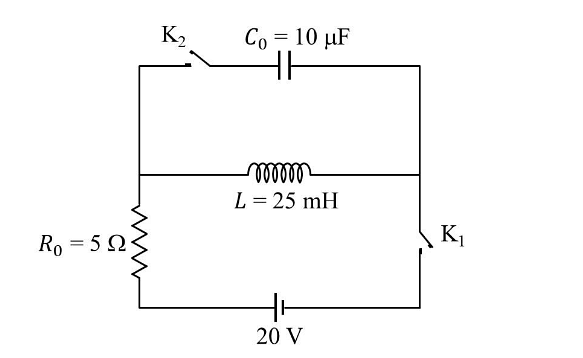Question:
If \( \frac{C_p}{C_v} \) is unity for a process, \( PV^{\gamma} = \text{constant} \), then the process is:
If \( \frac{C_p}{C_v} \) is unity for a process, \( PV^{\gamma} = \text{constant} \), then the process is:
Show Hint
For adiabatic processes, the relationship \( PV^{\gamma} = \text{constant} \) holds, where \( \gamma \) is the heat capacity ratio. This equation is specific to adiabatic compression or expansion in thermodynamics.
Updated On: Apr 25, 2025
- Adiabatic
- Isothermal
- Isobaric
- Isochoric
Hide Solution
Verified By Collegedunia
The Correct Option is A
Solution and Explanation
The relation \( PV^{\gamma} = \text{constant} \) is the equation for an adiabatic process, where \( \gamma = \frac{C_p}{C_v} \) is the heat capacity ratio. - Adiabatic process refers to a process where no heat is exchanged with the surroundings, i.e., \( Q = 0 \). In this case, the process follows the equation \( PV^{\gamma} = \text{constant} \), where \( \gamma = \frac{C_p}{C_v} \). - Isothermal process is characterized by a constant temperature, and the equation for an isothermal process is \( PV = \text{constant} \), not \( PV^{\gamma} = \text{constant} \). - Isobaric process refers to a process occurring at constant pressure, and its equation is \( P = \text{constant} \), not \( PV^{\gamma} = \text{constant} \). - Isochoric process occurs at constant volume, and the equation is \( V = \text{constant} \), not \( PV^{\gamma} = \text{constant} \). Thus, \( PV^{\gamma} = \text{constant} \) corresponds to an adiabatic process.
Was this answer helpful?
0
0
Top Questions on specific heat capacity
Match List-I with List-II.
List-I List-II (A) Heat capacity of body (I) \( J\,kg^{-1} \) (B) Specific heat capacity of body (II) \( J\,K^{-1} \) (C) Latent heat (III) \( J\,kg^{-1}K^{-1} \) (D) Thermal conductivity (IV) \( J\,m^{-1}K^{-1}s^{-1} \) - JEE Main - 2025
- Physics
- specific heat capacity
- Product of uncertainty in position (\(\Delta x\)) and uncertainty in velocity (\(\Delta v\)) has unit:
- KEAM - 2025
- Physics
- specific heat capacity
- Specific heat capacity of diatomic gas at constant volume:
- KEAM - 2025
- Physics
- specific heat capacity
In the given cycle ABCDA, the heat required for an ideal monoatomic gas will be:

- BITSAT - 2024
- Physics
- specific heat capacity
- The circuit shown in the figure contains an inductor L, a capacitor \(C_0\), a resistor\( R_0\) and an ideal battery. The circuit also contains two keys \(K_1\) and \(K_2\). Initially, both the keys are open and there is no charge on the capacitor. At an instant, key \(K_1\) is closed and immediately after this the current in \(R_0\) is found to be \(I_1\). After a long time, the current attains a steady state value \(I_2\). Thereafter,\( K_2\) is closed and simultaneously \(K_1\) is opened and the voltage across \(C_0\) oscillates with amplitude \(C_0\) and angular frequency \(\omega_0\).

Match the quantities mentioned in List-I with their values in List-II and choose the correct option.List-I List-II P The value of \(I1\) in Ampere is I \(0\) Q The value of I2 in Ampere is II \(2\) R The value of \(\omega_0\) in kilo-radians/s is III \(4\) S The value of \(V_0\) in Volt is IV \(20\) 200 - JEE Advanced - 2024
- Physics
- specific heat capacity
View More Questions
Questions Asked in KEAM exam
- Which among the following has the highest molar elevation constant?
- KEAM - 2025
- Colligative Properties
- The formula of Ammonium phosphomolybdate is
- KEAM - 2025
- coordination compounds
- Which is a Lewis acid?
- KEAM - 2025
- Acids and Bases
- Hardness of water is estimated by titration with
- KEAM - 2025
- Solutions
- Which of the following gases has the lowest solubility in water at 298 K?
- KEAM - 2025
- Solutions
View More Questions